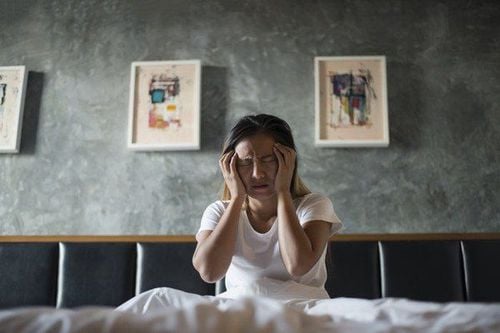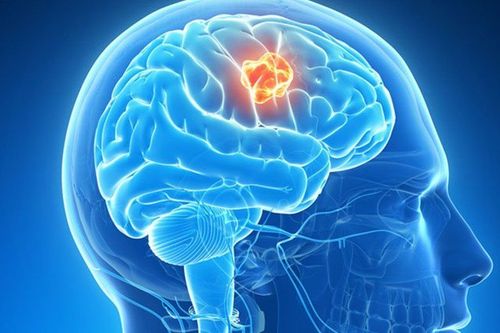This is an automatically translated article.
The article is professionally consulted by the Emergency Medicine Doctor - Emergency Resuscitation Department - Vinmec Phu Quoc International General Hospital.
Insomnia is clinically defined as difficulty falling asleep or maintaining sleep that impairs daytime functioning. To regain a good night's sleep, patients need to find out and treat the direct causes of insomnia. The most important thing is to create a comfortable and suitable environment for sleep.
1. Distinguishing between temporary insomnia and chronic insomnia
Newborns sleep an average of 16 hours a day divided into multiple naps. Adults usually sleep a long night at night, averaging 7 to 8 hours. The older you get, the more insomnia you have at night, the more you wake up and you have less deep sleep.
There are many types of disorders that interfere with sleep. Insomnia is generally divided into two categories: temporary insomnia and chronic insomnia.
1.1 Temporary Insomnia Temporary Insomnia is defined as insomnia lasting less than two weeks. The cause is often the stress caused by circumstances such as exams, the patient suffered a breakdown or a mental shock that causes insomnia for a short time.
1.2 Chronic Insomnia Chronic insomnia is difficulty falling asleep especially at night or waking up early and not being able to go back to sleep for at least 1 month.
Some causes of chronic insomnia can include behavioral disorders, environmental factors, respiratory diseases, cardiovascular diseases, bone and joint problems....

Mất ngủ mãn tính
2. Treatment of insomnia
Changing medications or treating underlying psychiatric disorders clearly improves sleep. Many types of non-pharmacological interventions are effective in the treatment of insomnia. These topics include instructions for sleep hygiene, relaxation techniques, common practices of gradual muscle relaxation, abdominal breathing, meditation, and self-breathe for at least 30 minutes of activities no longer than a month before go to sleep. Sleeping pills: Should use the lowest and most sparse tents possible, to limit the side effects. The most commonly used hypnotics are benzodiazepines. The choice of hypnotic drug depends on the individual patient's needs so that sleep can respond well to the drug. If you choose a short-acting sleeping pill, you should choose Zolpidem because it has fewer side effects.
3. Taking care of patients with insomnia
To care for a patient with insomnia, it is important to understand and treat the immediate causes of insomnia. The most important thing is to create a comfortable and suitable environment for sleep. In addition, the following issues should be noted:
It is necessary to ask carefully about the patient's sleeping pattern (length, continuity). Sleeping in the wrong position can also affect the quality of sleep. Reduce nap time: Although naps are good; However, if the nap time is prolonged, it will affect sleep at night. Instead of napping for 1 hour/day, you usually reduce the nap time to 15-20 minutes/day. It is necessary to consider the drugs that the patient takes, the types of drinks that often drink such as alcohol, caffeine. If the patient uses these drinks it is best to stop. Instead, add foods that can help you have a good night's sleep such as: Lotus seeds... Try a few relaxation techniques before going to bed such as: Meditation, walking, breathing exercises by method 4 -7-8 . If a serious mental disorder, such as schizophrenia, is suspected, medical facilities should be taken for testing for mental status.
Please dial HOTLINE for more information or register for an appointment HERE. Download MyVinmec app to make appointments faster and to manage your bookings easily.
SEE MORE
Common types of sleep disorders 8 ways to improve sleep quality for old age What drugs treat insomnia?













